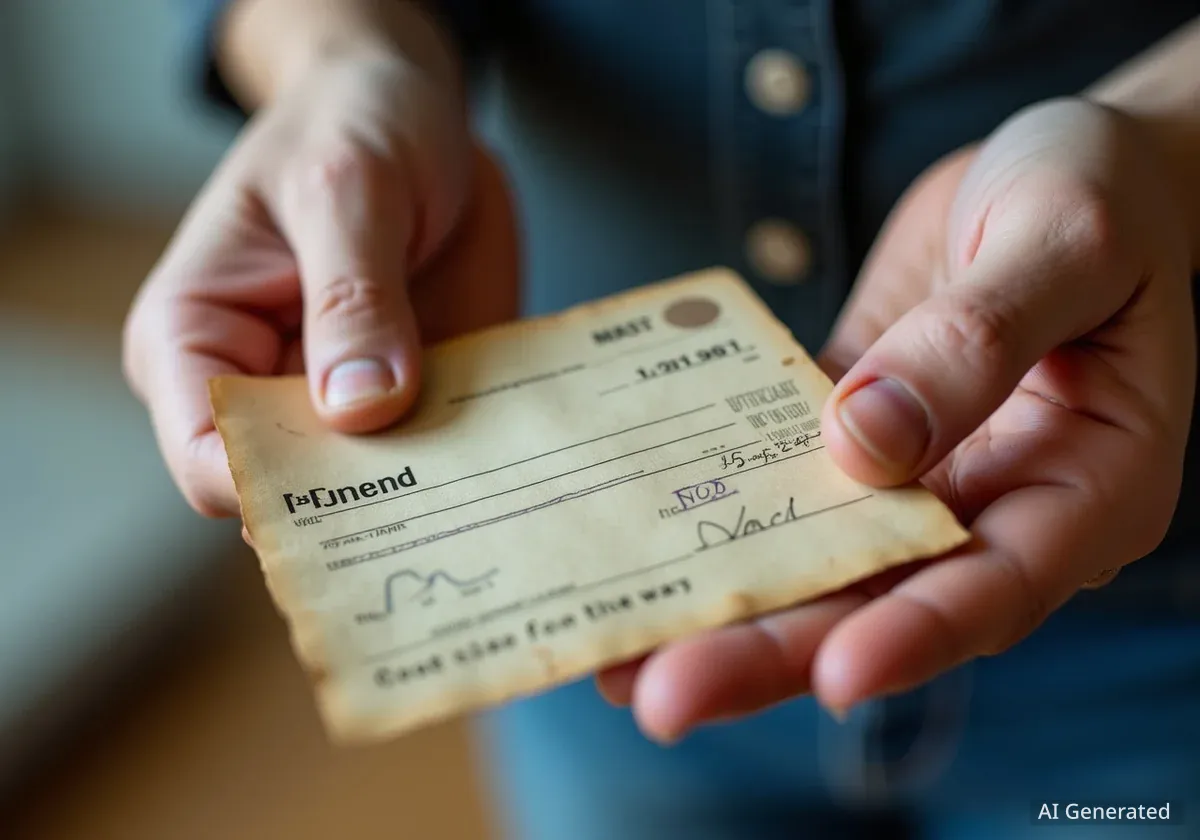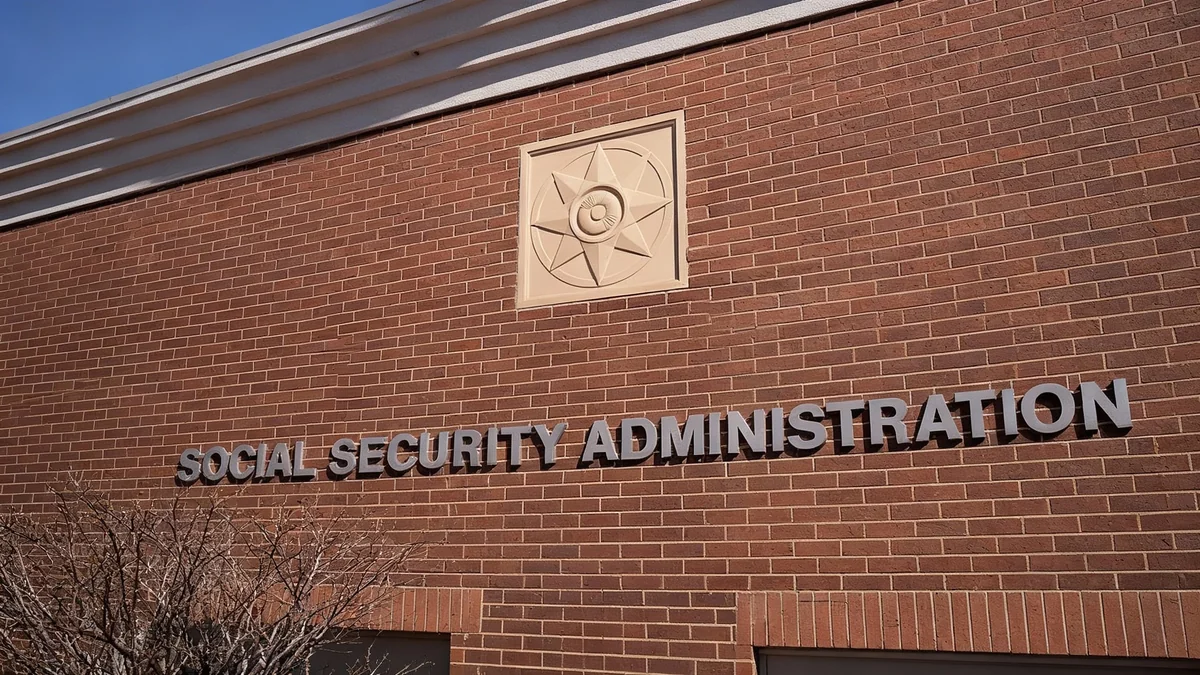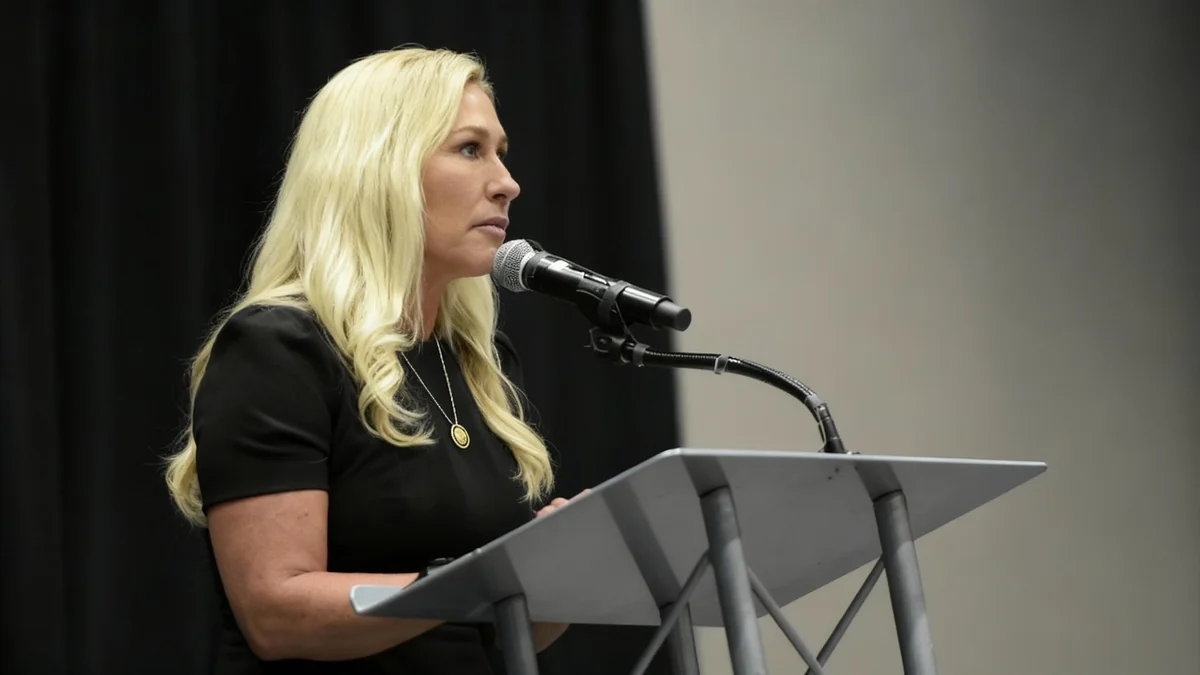The U.S. federal government is phasing out paper checks for Social Security and other federal benefits, with a final transition to electronic payments scheduled for September 30, 2025. This change will affect approximately 590,000 beneficiaries who currently receive their payments by mail.
The move, announced by the White House, aims to improve the efficiency and security of federal payments while reducing administrative costs. Beneficiaries will need to switch to direct deposit or a prepaid debit card to ensure they continue receiving their funds without interruption.
Key Takeaways
- Final Deadline: Paper checks for most federal benefits, including Social Security, will cease after September 30, 2025.
- Affected Recipients: About 590,000 Social Security beneficiaries, or 0.8% of the total, still receive paper checks.
- Payment Options: Recipients must transition to either direct deposit into a bank account or a Direct Express prepaid debit card.
- Reason for Change: The government is shifting to electronic payments to cut costs and enhance the security of benefit distribution.
- Exemptions: Waivers may be available for individuals facing certain hardships, and the Department of Veterans Affairs has a separate mandate allowing recipients to opt for paper checks.
The End of an Era for Paper Checks
The federal government's decision to eliminate paper checks for benefit payments marks a significant shift in how millions of Americans receive their funds. This policy applies to payments from the Social Security Administration (SSA), the Internal Revenue Service (IRS), and other federal agencies.
According to the Social Security Administration, the transition is designed to modernize the payment system. Electronic transfers are generally faster, more reliable, and less susceptible to theft or loss compared to paper checks sent through the mail.
Why the Change is Happening
The U.S. Treasury cites two primary reasons for the mandatory switch to electronic payments: cost savings and increased security. Printing and mailing millions of checks each year is a significant expense for the federal government. Furthermore, electronic payments reduce the risk of fraud and lost or stolen checks, providing a safer method for beneficiaries to access their money.
While the vast majority of recipients already use direct deposit, a small but significant number of individuals have not yet made the switch. An SSA spokesperson confirmed that the agency is focused on assisting these individuals through the transition.
"Where a beneficiary has no other means to receive payment, we will continue to issue paper checks," an agency spokesperson stated, indicating that provisions will be made for the most vulnerable recipients.
Understanding Your Electronic Payment Options
Beneficiaries who currently receive paper checks have two main alternatives to choose from. It is important to select an option before the September 30 deadline to avoid any potential delays in receiving payments.
1. Direct Deposit
Direct deposit is the most common method for receiving Social Security benefits. Payments are sent electronically directly into a recipient's bank or credit union account on the scheduled payment date. This option provides immediate access to funds without the need to visit a bank to deposit a check.
To set up direct deposit, you will need your bank account number and the financial institution's routing number. Most banks and credit unions can assist with setting up this service.
2. The Direct Express Debit Card
For individuals who do not have a bank account, the Treasury Department offers the Direct Express® prepaid debit card. This card functions like a standard debit card and is a secure alternative to carrying large amounts of cash.
Each month, federal benefit payments are automatically loaded onto the card. Cardholders can use it to make purchases, pay bills, and get cash back at retail locations or ATMs. This option eliminates the need for a traditional bank account and avoids check-cashing fees.
A Look Back at Social Security History
The move away from paper checks concludes a long history that began over 80 years ago. According to Richard Himelfarb, a professor at Hofstra University, the very first Social Security check was issued on January 31, 1940, to Ida May Fuller for the amount of $22.54.
How to Make the Switch from Paper Checks
The Social Security Administration and the U.S. Treasury have established several methods for beneficiaries to transition to an electronic payment system. It is recommended to complete this process well before the September deadline.
Here are the steps you can take to enroll:
- Contact the Treasury: Call the U.S. Treasury Electronic Payment Solution Center at 800-333-1795. You will need your bank account information ready to provide over the phone.
- Visit Your Bank: Go to your local bank or credit union branch. A representative can help you fill out the necessary forms to switch your federal benefits to direct deposit.
- Call the SSA: You can contact the Social Security Administration directly at 800-772-1213 to request the change.
- Enroll Online: The Treasury's Go Direct website provides a secure online portal for recipients to sign up for direct deposit.
- Mail a Form: Beneficiaries can also fill out Form FS 1200 and mail it to the Go Direct Processing Center in Dallas, Texas.
Addressing Common Questions and Concerns
The transition has raised questions for some beneficiaries, particularly older Americans who may be less comfortable with digital banking. Richard Hite, a 78-year-old retired accountant, expressed concern for peers who do not use computers.
"We know a few people who don’t have a computer," Hite said, also noting his own hesitation about online security. "The idea of putting my account information out there where people can grab it, it bothers me." These concerns are common, but electronic payments are protected by federal regulations.
What If I Don't Have a Bank Account?
The Direct Express debit card is the primary solution for beneficiaries without a bank account. It provides a safe and easy way to access funds without needing to open an account. For those interested in opening an account, the Federal Deposit Insurance Corporation (FDIC) website offers resources to find insured banks in your area.
Are There Any Exemptions?
Yes, the Treasury may grant waivers on a case-by-case basis for individuals with specific hardships. To request an exemption, you can call 855-290-1545 or mail a waiver request form. It's important to note that the Department of Veterans Affairs operates under a different mandate; federal law requires the VA to continue offering paper checks to recipients who request them.
What Happens If I Miss the Deadline?
The Social Security Administration urges all recipients to switch before September 30, 2025, to ensure "timely" payments. Waiting until the last minute or missing the deadline could result in delays in accessing your benefits. If you need assistance, it is best to contact the SSA or the Treasury as soon as possible.





